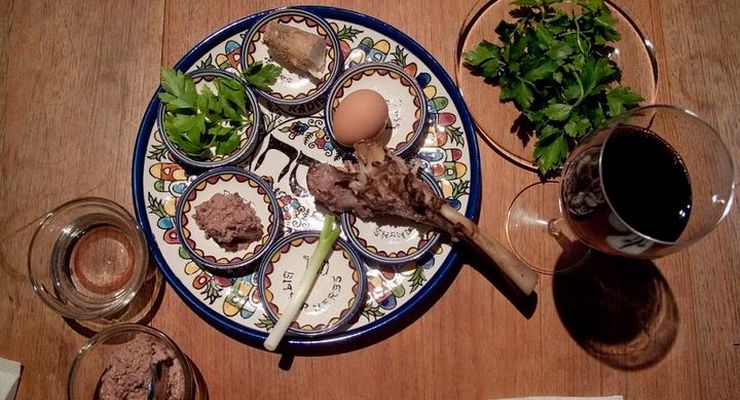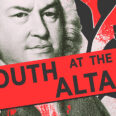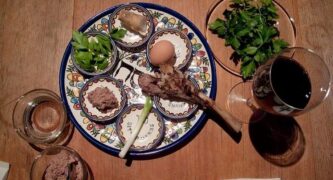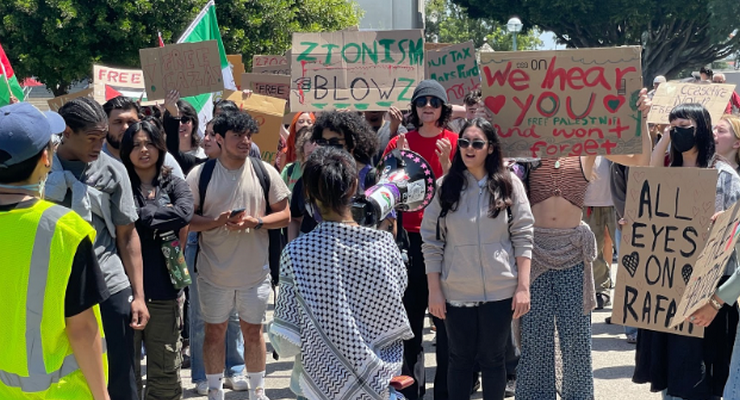
The eight-day celebration of Passover begins at sundown Monday, commemorating the time between the Exodus from Egypt on the 15th of the Hebrew month of Nissan and the parting of the Red Sea seven days later to allow the fleeing Israelites to make their getaway.
The Pasadena Jewish Temple and Center and Chabad of Pasadena are preparing for the holiday. Both congregations have announced plans for communal Seders and services throughout the week-long holiday.
The Pasadena Jewish Temple and Center, located in Altadena, has seen high demand for its Second Night Passover Seder on April 23, leading to a waitlist for the event. While the Seder is fully booked, the Pasadena Jewish Temple and Center plan Passover services on April 23, 24, 29, and 30.
Meanwhile, Chabad of Pasadena is planning a series of Passover events from April 22 to April 30, including communal Seders on the first two nights. Reservations are required. Morning services and Kiddush lunches will be held throughout the week.
A number of contemporary scholars, including Jewish historians and archaeologists, believe the story of the Exodus is apocryphal and that the Israelites were never among the peoples subjugated by the ancient Egyptians.
However, regardless of any historical debate, most rabbis believe it should not obscure the themes — faith, freedom, and redemption — inherent in the biblical tale.
According to the Book of Exodus, the enslaved Israelites used the blood of lambs to mark their doors so the Angel of Death would “pass over” their homes and instead slay the firstborn sons of Egyptians — the 10th and most horrific of the plagues that finally persuaded the pharaoh to accede to Moses’ demand: “Let my people go.”
During the Seder, people drink four cups of wine or grape juice, symbolizing the promises that God made to the Israelites, including deliverance from bondage. Also as part of the ritual, a child traditionally asks the four questions of the Seder, which means order.
The introductory question of “Why is this night different from all other nights?” is followed by “Why is it that on all other nights during the year we eat either bread or matzo, but on this night we eat matzo?” “Why is it that on all other nights we eat all kinds of vegetables, but on this night we eat bitter herbs?” “Why is it on all other nights we do not dip even once, but on this night we dip twice?” and “Why is it that on all other nights we eat either sitting or reclining, but on this night we eat in a reclining position?”
The purpose of the questions is to spark discussion and learning, as teaching the story of the Exodus to children is one of the most important elements of the Seder. The meal is accompanied by reading from the Haggadah, or “narration” book, which tells the story of the Israelites’ deliverance from bondage.
The Seder features six symbolic foods, including matzo, a cracker-like unleavened bread symbolizing the Exodus from ancient Egypt when there was not enough time to let the bread rise.
While Passover rituals vary in different parts of the world, Jews are traditionally not permitted to eat or possess any foods made with wheat, barley, rye, spelt or oats.
Bitter herbs, often horseradish, represent the bitterness of slavery; parsley dipped in saltwater symbolizes the tears the Israelites shed in bondage; and an apple, nut, spice and wine mixture called charoset represents what the Torah, the Jewish holy scripture, describes as the mortar used by Jewish slaves to build Egyptian edifices.
The holiday is observed for seven days in Israel, with one Seder, and eight days outside Israel, with two. The difference is that people in ancient times who lived far from Jerusalem could not know when a new month under the Hebrew lunar calendar had been officially declared and, in turn, could not be sure of the exact date.
“For thousands of years, we have come to each other’s table to celebrate Passover. It is the oldest of our traditions, and in every generation, Jews have gathered to joyfully pray for a better future,” Rabbi Noah Farkas, president & CEO of the Jewish Federation Los Angeles, told City News Service.
“The challenges Jews are facing today are unrelenting. There are 133 Israelis held in real captivity, in tunnels and holes, fettered from freedom. This year there will be empty chairs at the table in memory of those we lost on Oct. 7. We also know we are also facing an alarming and frightening rise in antisemitism,” he continued.
“But like our ancestors, we, too, are resilient. We can’t forget that our greatest strength is when we use our resilience to create joy. There is joy in honoring our traditions. There is joy in overcoming hardship. And we will overcome.”














 0 comments
0 comments


